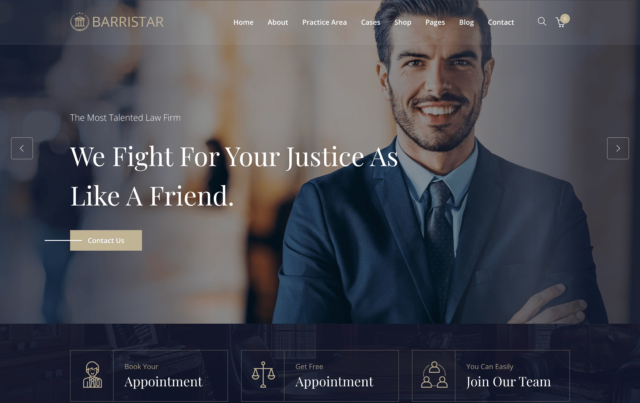Attorney Advertising Rules for the State of New York
Read for more information on the rules for online advertising for New York attorneys
New York Attorney Advertising Rules: Comprehensive Overview
Attorneys practicing in New York are required to adhere to specific advertising regulations as outlined in the New York Rules of Professional Conduct (RPC), particularly Rules 7.1 through 7.5. These rules are designed to ensure that legal advertising is truthful, not misleading, and upholds the integrity of the legal profession. Below is a detailed overview of the key provisions governing attorney advertising in New York.
RPC 7.1: Advertising
- Truthfulness in Advertising:
- Lawyers must not disseminate advertisements that contain statements or claims that are false, deceptive, or misleading.
- Advertisements should not omit facts necessary to make the communication considered as a whole not materially misleading.
- Identification of Advertisements:
- All advertisements must be labeled as “Attorney Advertising” on the first page or at the beginning of the communication.
- Use of Testimonials and Endorsements:
- Testimonials or endorsements must be truthful and not misleading.
- If actors are used to portray clients or scenes, a disclaimer must be included stating that actors are being used.
- Portrayal of Judges:
- Advertisements must not include the portrayal of a judge or imply an ability to influence a court or tribunal.
- Use of Trade Names:
- Lawyers may use trade names in their practice, provided the name is not misleading and does not imply a connection with a government agency or public or charitable legal services organization.
RPC 7.2: Payment for Referrals
- Prohibition on Paying for Recommendations:
- Lawyers shall not give anything of value to a person or organization for recommending the lawyer’s services, except for the reasonable cost of advertisements or communications permitted by these rules.
- Permissible Payments:
- Lawyers may pay the usual charges of a legal service plan or a not-for-profit lawyer referral service.
- Reciprocal Referral Agreements:
- Lawyers may enter into reciprocal referral agreements with other lawyers or non-lawyer professionals, provided the agreement is not exclusive, and the client is informed of the nature and existence of the agreement.
RPC 7.3: Solicitation and Recommendation of Professional Employment
- Direct Contact with Prospective Clients:
- Lawyers shall not engage in solicitation by in-person, live telephone, or real-time electronic contact when a significant motive is the lawyer’s pecuniary gain, unless the person contacted is a lawyer or has a family, close personal, or prior professional relationship with the lawyer.
- Written Solicitations:
- Written solicitations must be clearly marked “Attorney Advertising” on the envelope and at the beginning and end of any recorded or electronic communication.
- Prohibited Solicitations:
- Solicitation is prohibited if the prospective client has made known a desire not to be solicited or if the solicitation involves coercion, duress, or harassment.
RPC 7.4: Identification of Practice and Specialty
- Communication of Fields of Practice:
- Lawyers may communicate the areas of law in which they practice.
- Claims of Specialization:
- Lawyers shall not state or imply that they are certified as a specialist in a particular field of law, except as provided by the rules.
- Certification by Approved Organizations:
- Lawyers may state they are certified as a specialist by an organization approved by the American Bar Association or another appropriate authority, provided the certifying organization is clearly identified in the communication.
RPC 7.5: Professional Notices, Letterheads, and Signs
- Firm Names and Letterheads:
- Lawyers shall not use firm names, letterheads, or other professional designations that are false, deceptive, or misleading.
- Trade Names:
- Use of trade names is permissible if they do not imply a connection with a government agency or with a public or charitable legal services organization and are not otherwise in violation of RPC 7.1.
- Names of Deceased or Retired Partners:
- The name of a deceased or retired partner may be used in a firm name if the use is consistent with local custom and not misleading.
- Public Office Restrictions:
- Lawyers holding public office shall not be included in the firm name or communications during any substantial period in which they are not actively practicing with the firm.
- Jurisdictional Limitations:
- If a firm operates in multiple jurisdictions, any limitations of lawyers not licensed to practice in a specific jurisdiction must be clearly disclosed on firm letterheads and in advertising.
Record-Keeping Requirements
- Retention of Advertising Records:
- Attorneys must retain copies of all advertisements for at least three years after their last dissemination.
- Records should include details about when and where the advertisement was published or broadcast, as well as any associated materials such as scripts or recordings.
- Digital and Online Advertising:
- Electronic advertisements, including websites and social media campaigns, must also be preserved in a retrievable format that includes all disclaimers and relevant information.
Specific Rules for Digital and Online Advertising
Website and Social Media Compliance
- Applicability of Rules:
- All online communications, including websites and social media posts, must comply with RPC 7.1 through RPC 7.5.
Use of Testimonials and Reviews
- Accuracy and Disclaimers:
- Client testimonials and endorsements must not create unjustified expectations or imply guaranteed results.
- Any use of testimonials that reference specific case outcomes must include a disclaimer clarifying that results depend on the unique circumstances of each case.
Videos and Dramatizations
- Use of Actors:
- If actors are used in advertisements, a disclaimer must clearly state, “This is a dramatization. Not an actual client or case.”
Email and Online Solicitations
- Disclosure Requirements:
- Email solicitations must prominently display “Attorney Advertising” in the subject line and at the beginning of the email body.
- Prohibited Practices:
- Any solicitation that uses coercive, misleading, or deceptive language is strictly prohibited.
Enforcement and Compliance
Oversight by the New York State Unified Court System
- Advertising compliance is overseen by the New York State Unified Court System’s Grievance Committees. These committees review attorney advertisements to ensure compliance with the RPC.
Consequences of Non-Compliance
- Attorneys who violate New York’s advertising rules may face disciplinary actions, including:
- Warnings or reprimands for minor infractions.
- Suspension or disbarment for severe or repeated violations.
Advisory Opinions
- Attorneys unsure about the compliance of their advertising practices can seek advisory opinions from the New York State Bar Association (NYSBA) Committee on Professional Ethics. This step can help mitigate risks and ensure alignment with the RPC.
Additional Advertising Considerations
Contingency Fee Advertisements
- Required Disclosures:
- Advertisements that reference contingency fees must disclose whether clients may still be responsible for court costs and other expenses, even if the case is not successful.
Avoiding Misleading Statements
- Accuracy in Advertising:
- All advertisements must accurately represent the attorney’s qualifications, experience, and areas of practice. Misleading or exaggerated claims are strictly prohibited.
Referral Practices
- Disclosure of Referrals:
- If attorneys refer a substantial number of cases to other firms, this practice must be disclosed in advertisements, clarifying the nature of their involvement in the referred cases.
Conclusion
The attorney advertising rules in New York, outlined in RPC 7.1 through RPC 7.5, aim to promote transparency, truthfulness, and professionalism in legal marketing. These rules apply across all forms of communication, including print, broadcast, and digital media.
By adhering to these regulations, attorneys can effectively promote their services while maintaining compliance with ethical standards and building trust with potential clients. For additional guidance or clarification, attorneys are encouraged to consult the New York State Bar Association Committee on Professional Ethics or seek assistance from the Unified Court System’s Grievance Committees.
Our marketing packages include the following
Search Engine Optimization
Paid Search Management
Legal Content Development
Website Design
Live Chat
Social Media Management









